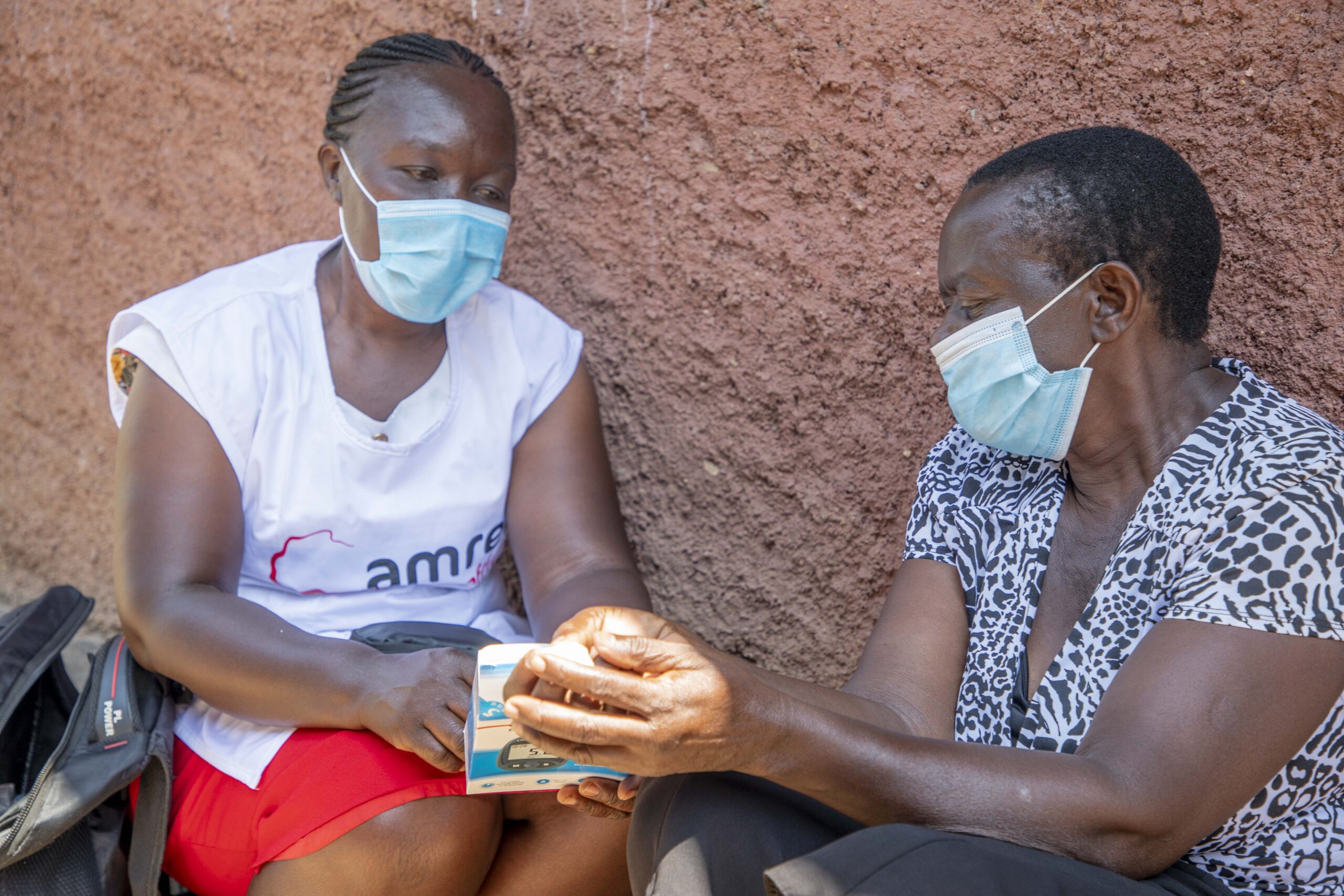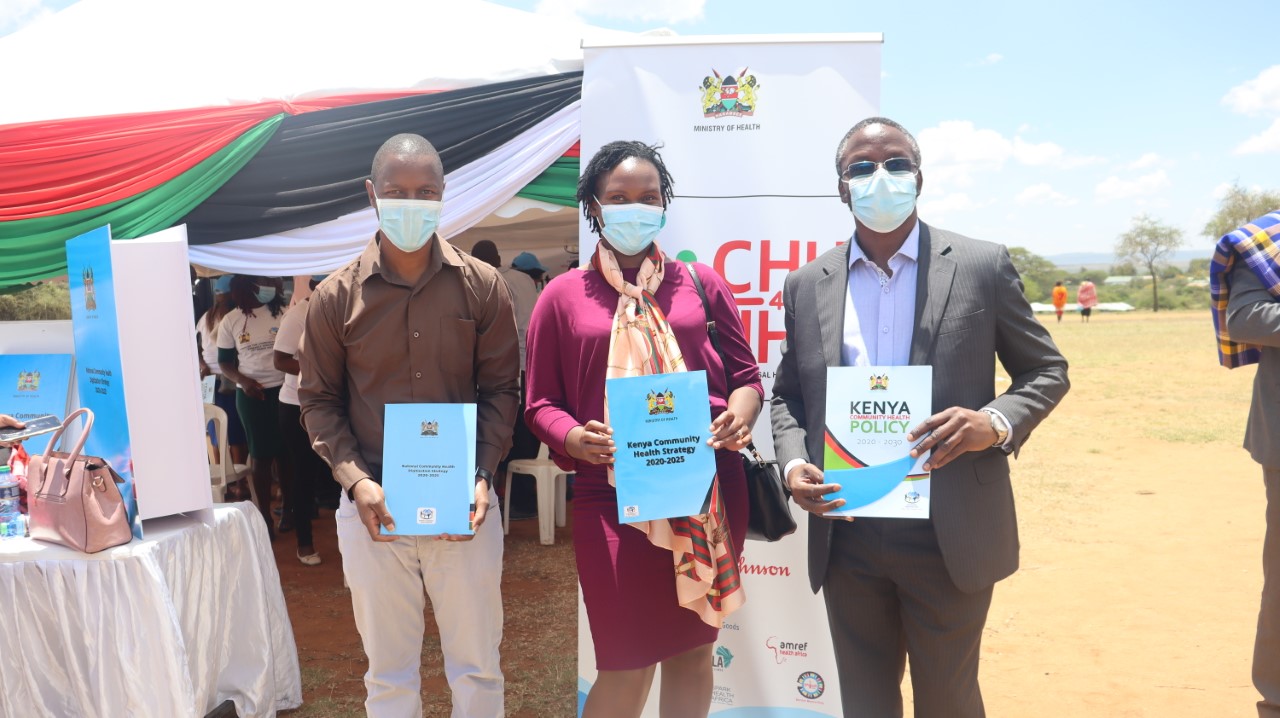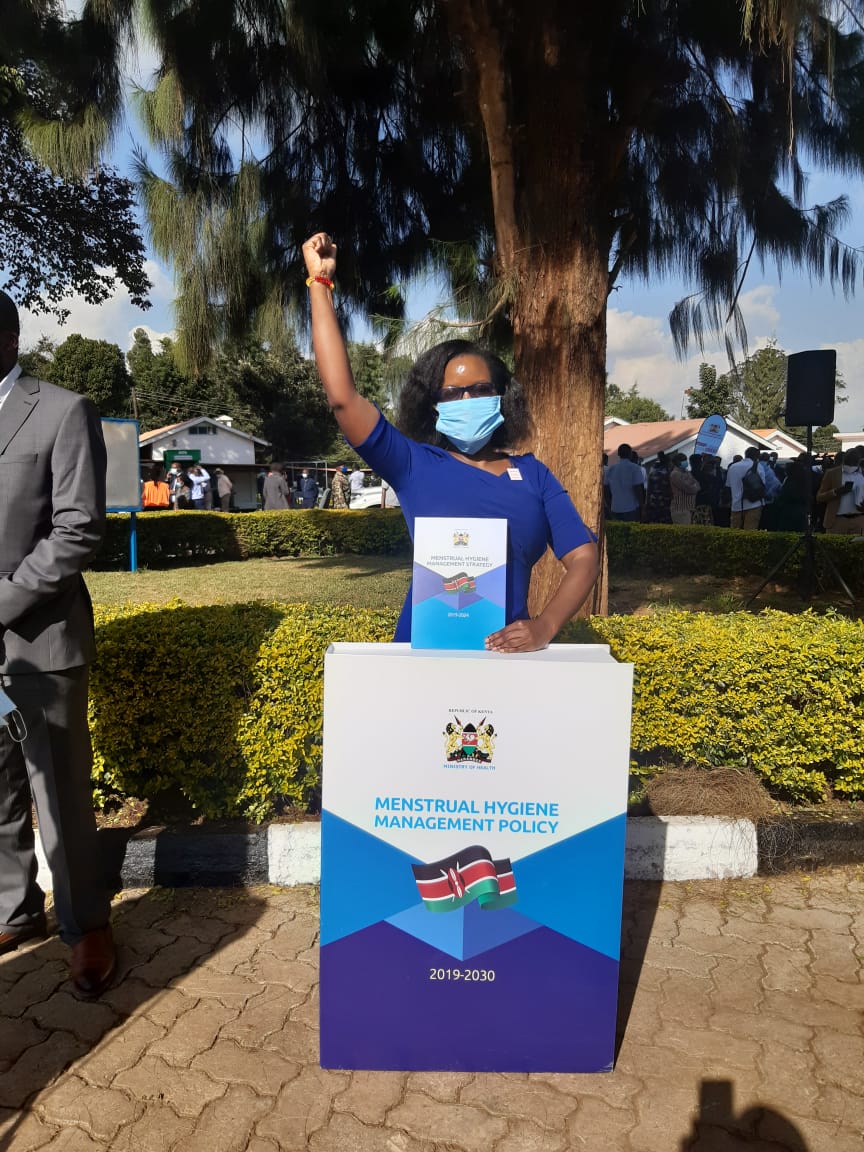TB Ambassador Counsels Using Her Experience with Drug Resistant TB – Catherine’s Story
Monday, 7 October, 2019

A community health volunteer’s visit to her home saved her life.
She was very ill and could not even walk. She had lost her appetite and was growing thinner and thinner by the day.
This is the story of Catherine from West Pokot County, who developed multi-drug resistant tuberculosis (MDR TB) as a result of interrupting treatment.
A widow, Catherine resided with her five children, farming maize and pulses to feed her family.
Life was normal for her until late 2013 when she fell sick.
“At first I thought it was a malaria attack,” she says, adding that she had cold chills, low appetite, high fever, a cough and vomiting.
In January 2014, Catherine decided to visit the Kacheliba sub-County Hospital where she was diagnosed with TB. She was immediately put on medication which she was to use for the first two months. So as to have easier access to the TB clinic at the hospital, she had to stay with a relative nearby. However, before the end of the two months, she decided to go back home where she continued with her medication. Feeling much better, she did not go back to the hospital for a refill to progress onto the second phase of her treatment.
In 2015 she got very ill. She would cough throughout the night.
“I would throw up anything I ate,” she explains.
In October of the same year, Catherine was visited by a community health volunteer (CHV) who was following up on treatment defaulters in the village.
“The CHV found me when I was completely down,” she says.
Since she could not even walk, the CHV put her on a motorbike that transported her to the ‘TB Manyatta’ (TB ward) at Kacheliba sub-County Hospital. She was put on TB drugs and a test revealed that she had MDR TB. MDR TB is a form of TB that does not respond to ‘ordinary’” TB treatment and is thus difficult to treat requiring specialised treatment.
She was then prescribed a daily injection for another nine months. She was later certified TB-free.
Upon her recovery, Catherine and her children moved away to a new start. In a new town, she used part of the social support funds she received from the Global Fund through Amref Health Africa to support her on her treatment journey to open a small grocery shop. From the business, she can now take care of herself and her children. Using the same social support allowance, she has put up a house where she and her children currently live.
Every Wednesday, Catherine goes to Kacheliba sub-County Hospital’s ‘TB Manyatta’ to counsel TB patients while using her life story as an example. Whenever she comes across anyone exhibiting signs and symptoms of TB, she refers them for testing at the facility. She also follows up on those who default treatment and brings them back to care.
She also sensitises community members to construct houses with sufficient ventilation and on the importance of a balanced diet for TB patients.
Because the local health management team was impressed by the way she later on took her treatment seriously, they appointed her a TB Ambassador. Catherine says she feels inspired because she can help people who are sick.
Compared to treatment for drug sensitive (ordinary) TB, MDR-TB treatment is intensive, requiring patients to visit a health facility daily to receive treatment. Many patients with MDR TB face catastrophic costs as many of them cannot work during the course of their treatment.
With the support of the Global Fund to Fight AIDS, Tuberculosis and Malaria, Amref Health Africa in Kenya provides multi-drug resistant TB (MDR-TB) patients with a monthly stipend for their sustenance during the course of treatment. This caters for costs for transport to and from the facility and dietary requirements for successful treatment outcomes.
Kenya is a high burden country for both drug sensitive and drug resistant TB. According the Ministry of Health’s National TB, Leprosy and Lung Disease Program (NTLD-Program), 577 MDR-TB cases were notified in 2017.




